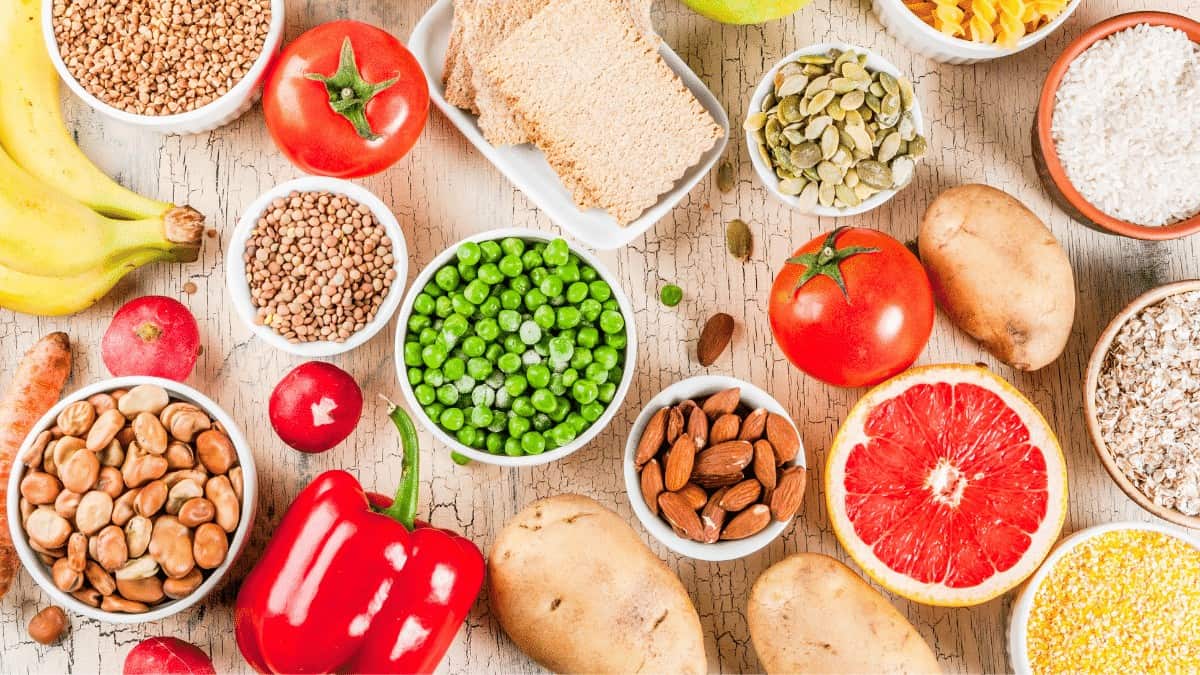Answer: Yes, vegans can eat carbs and still have a healthy diet.

Table of Contents
Can Vegans Eat Carbs?
Carbs, shortened for carbohydrates, are one of the main macronutrients that make up a healthy diet. They come in various organic compounds that have carbon, oxygen, and hydrogen as the main components. Your body breaks down and simplifies carbs to convert them into energy.
You can get carbs from a wide variety of food items. These can include rice, veggies, fruits, pasta, sugar, whole grains, beans, lentils, etc. Meat is not a great source of carbs in most cases, so you’re not missing out on anything there.
Misleading Claims About Carbs
There is a lot of literature out there that claim that carbs aren’t vegan. These carb claims couldn’t be further from the truth. Carbs are about as vegan as healthy food can get. It’s more so because even meat gives protein and fats, which are the other two main nutrients in a healthy diet.
Carbs, in fact, are almost exclusively vegan sources of nutrition. Even meat-eaters need plant products to get the right amount of carbs. Carbs are what keep your body going throughout the day, along with other nutrients. In fact, they’re so crucial that over 50% of your nutrition should come from carbs.
Carbs can give you around the same number of calories as proteins.
| Nutrient | Cal/g |
|---|---|
| Carbs | 4 |
| Proteins | 4 |
| Fats | 9 |
Among the three primary nutrients, it should be clear that fats have higher caloric content. Carbs and proteins give a more moderate number compared to fats.
Carbs and Weight
Let’s get one thing straight first. Any food you eat is going to add more weight to your body if you aren’t burning the calories. And every food item we consume has some calories in it. So, the focus of weight loss should be on the balance between intake and outlet of calories.
That being said, carbs will add more weight if consumed excessively. But this fact is true for both proteins and fats too. An average adult requires around 2000 calories each day (Give or take a few hundred calories). So, your carb intake should be about 250 g per day. This figure can change depending on the kind of weight you want to gain or lose. But the proportion remains the same. You can do the sensible thing here and stick to carbs that are high in fiber and lower in sugars.
Good Carbs vs. Bad Carbs
We can’t stress enough how all carbs have some benefits for your body. It’s the quantity and choice that defines whether the carbs become a problem or not. But if you have a goal to lose more weight, picking the right carbs can make the difference.
Carbs can have three parts. These are sugar, starch, and fiber. Most of these elements get broken down to give you the energy you need to stay alive and do stuff. But fiber has the least calories. Since fiber still makes you feel ‘full,’ it’s a good idea to include high-fiber foods in your diet.
How to Choose the Right Carbs?
So, how do you separate high-fiber carbs from the more sugary ones? The most significant indicator of this is whether the food is natural or processed. A general rule is that the more natural the carb, the better for your body. If the carb comes in a whole, natural, and single ingredient, it’s usually a healthy carb. Processed foods, on the other hand, typically have the natural fibers removed. So, you get the sugars that taste great but should stay within limits.
Here’s a general list of what natural and processed carbs normally look like.
| Natural/Whole Carbs | Processed/Refined Carbs |
|---|---|
| Whole fruits | Pastries and cakes |
| Vegetables | Fruit juices |
| Nuts | Sugary drinks |
| Legumes | Chocolate and candies |
| Whole grains | Fries and crisps |
| Seeds | White Bread |
So, you get the idea. Choose more natural carbs over commercially processed foods, and you should be fine.
Final Note
The bottom line is that these foods all have their time and place in our lifestyle. It’s easy to see which ones to eat more and which ones to cut down on if you want to stay healthy. Remember, carbs aren’t bad in themselves. But like everything else in life, you should take it at recommended levels.




